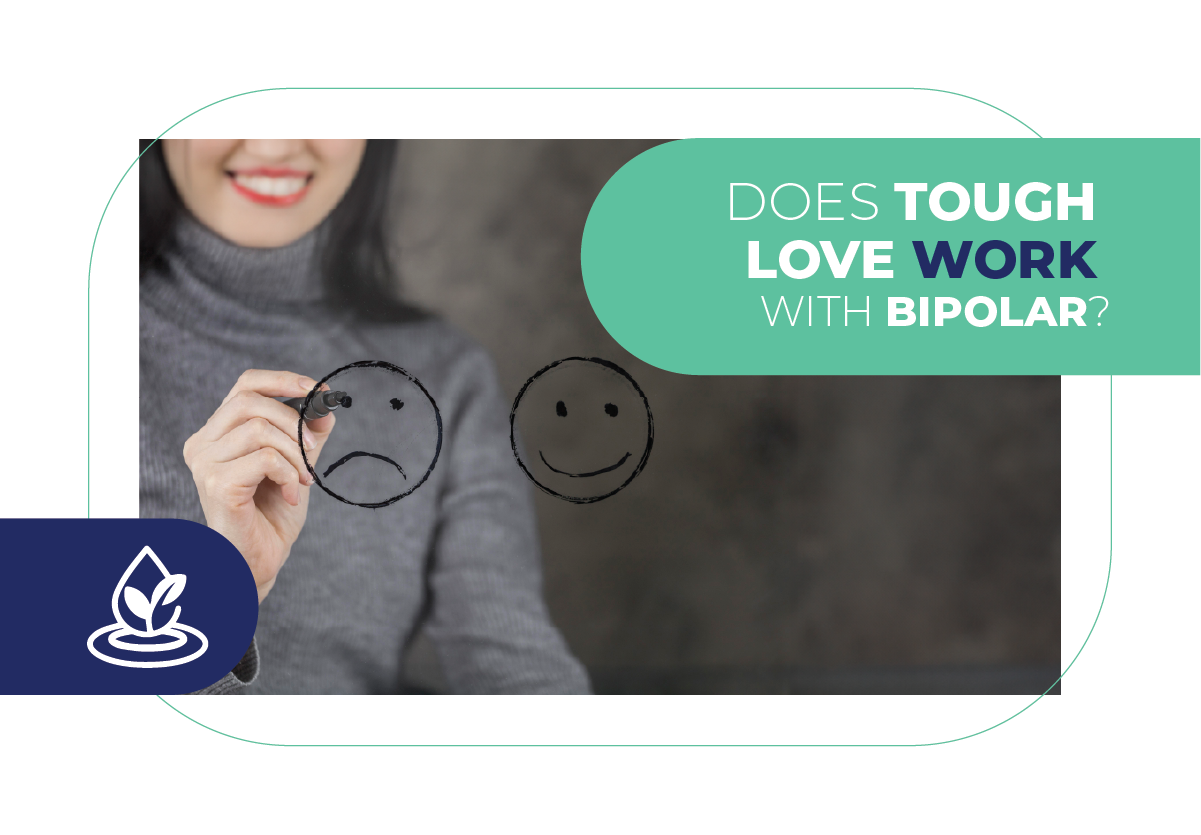Caring for a loved one who has bipolar disorder can be a delicate balance. Recognizing how to support them best may not look like you expected.
So, the question is, does tough love work with bipolar? It is not advisable to show tough love to a person who has bipolar disorder. The best and most appropriate way is to make issues better rather than worse.
It is possible to enable a loved one with bipolar disorder, which means that what you are doing for them is ultimately not beneficial to them. Enabling can also appear to be a functional behavior that causes harm in the long run.
If you are a relative or close friend of someone with bipolar disorder, you may be wondering what you can do to help. There is no need to put yourself under unnecessary strain!
You can seek advice from Atlantis Wellness Center on the best treatment options.
Bipolar And Obsessive Love
The symptoms of bipolar disorder are capable of causing conflict in your relationship. Because bipolar disorders are on a continuum, each type can present a unique set of challenges for a variety of reasons.
Here are some of the reasons that bipolar disorder may lead to relationship issues:
- Mood swings
- Medication management
- Anger
- Depression
- Overthinking
Contact us to learn more about bipolar disorder and Dr. Sheli Ghezel’s treatment methods!
Love and Mental Illness
If you or your loved ones are dealing with mental health issues, it can have a significant impact on maintaining a healthy relationship.
A large body of psychological research supports self-compassion and self-love.
It has a significant impact on our psychological health and emotional state, reducing anxiety, depression, frustration, and loneliness.
Furthermore, it boosts our confidence and motivation.
Our positive state can boost happiness, appreciation, and connectedness with others.
That self-compassion enables us to calm our nervous system and silence self-critical thoughts.
It enables us to interact more with our surroundings and with others.
How does a Person with Bipolar Thinks?
Bipolar disorder can impair your ability to think and reason, especially during a manic, hypomanic, or depressive episode.
High energy levels, racing thoughts, and impulsive behavior characterize manic episodes. During a depressive episode, your thoughts may be slower. You might find it difficult to concentrate.
The type of bipolar disorder you have affects how you think. There are four types of bipolar disorders:
- Bipolar I disorder
- Bipolar II disorder
- Cyclothymic disorder
- Other specified and unspecified bipolar disorders
How To Support a Loved One with Bipolar Disorder
- Learn More About Bipolar Disorder
Understanding is power. Knowing the fluctuations that are part of bipolar disorder is critical to managing your expectations of how you can assist.
Furthermore, knowing what to expect regarding enhancement can help you manage your growth and behavior change expectations.
- Have a Discussion
Talk therapy is well-known for its effectiveness in treating bipolar disorder. Even outside therapy sessions, talking about how your loved one feels during their episodes can provide comfort.
Asking them straightforward questions about their feelings can encourage emotional honesty. If they are using substances or other unhealthy coping mechanisms during an episode, speak with them.
- Make a Plan for Episodes
If you know your loved one overspend during manic episodes, you can plan accordingly and help them develop a budget.
This could include using a credit card with a set spending limit or only using cash during incidents. It may help them develop a realistic schedule or everyday routine in other cases.
Does Tough Love Work with Bipolar?
There are several reasons why somebody with bipolar disorder may push others away. This typically occurs during depressive episodes.
However, it can occur even when they are manic or symptom-free. It can be painful to be shut out, but it is not your fault.
Here are a few factors why people with bipolar drive others away:
- They do not want to burden others with their problems. The inside of a bipolar mind can be dark at times.
- People who have bipolar disorder frequently worry that their problems will bring them down. Sometimes, confiding in others causes feelings of shame or guilt.
- They may keep you “out of the line of fire.” Episodes of depression and mania can strip a bipolar person of control.
- Lashing out or irritation are common signs of mood changes. They could have been concerned about hurting their emotions.
- Excessive mood swings may lead to distrust of others. People with bipolar disorder struggle to believe that they are entirely supported.
- They may be concerned that you will respond with judgment or frustration if they confide in you.
Even if you’ve never responded in this way before, it can still cause concern. They may assume you will lose patience with them.
Concluding Note
Although no two people with bipolar disorder have the same thoughts or experiences, most of them share specific thought patterns. This encompasses cyclical pondering, manic or episodes of depression, suicidal ideation, and psychosis.
Educating yourself can help to reduce stigma and support those living with the condition. This also includes being aware of the harmful preconceived notions about individuals who have bipolar disorder.
Medication, therapy, an extensive support system, and other mental health resources can assist you in managing your thoughts and achieving long-term stability.
Frequently Asked Questions
What is the leading cause of death in bipolar people?
Suicide is the leading cause of bipolar people’s death.
What are the terrible coping mechanisms for bipolar people?
Several factors contribute to the harmful mechanisms in bipolar people:
- Substance abuse
- Self-blame
- Behavior changes
What is end-stage bipolar disorder?
Late stages can be identified by persistent cognitive and motor impairment, which can often be accompanied by subsyndromal symptoms of depression. It is associated with difficulty with standard treatments.
Does challenging love work with mental health?
However, forceful affection can backfire. It can leave a person feeling as if no one cares or acknowledges them for what they are. It can make them feel separated and unworthy.







No comment